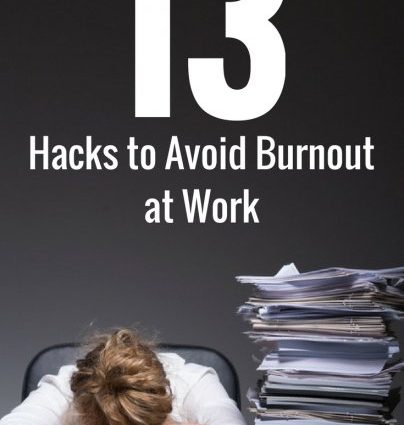Professional burnout is talked about a lot these days. Some associate its spread with the peculiarities of the work culture in Russia, some with poor-quality management, and others with the excessive sensitivity of the employees themselves. What are some simple things you can do to help prevent burnout?
We have collected 13 tips prepared by the experts of the Telegram channel . Every day there is published one small recommendation, compiled taking into account current scientific data. These tips will not replace psychotherapy and will not save you from burnout in and of themselves — but they will certainly help you deal with your feelings. Or maybe slow down the burnout.
1. If you are doing several projects at the same time or, for example, working and studying, remember: switching attention from one activity to another takes time and effort. Try to make fewer switches so that you spend less effort on changing contexts.
2. Keep in mind that planning also takes resources: time and effort. It’s not an addition to the job, it’s part of it.
3. By itself, switching from one activity to another does not always help to relax. It is important that activities bring pleasure and help restore resources.
4. When someone criticizes you, try to think: would you like to get advice from this person? If not, perhaps criticism from him should not be accepted and taken into account either.
5. You can burn out when the work is too difficult for you, and when it is too easy. Think about your situation: is it better to try to take on more or less?
6. The essence of procrastination is that we avoid something unpleasant when we are stressed. Try to notice the stress, stop, count from five to one — and start doing the thing, despite the unpleasant feeling, and do it for at least five minutes.
The problem of procrastination is not the difficulty of the work itself, but the avoidance of starting it.
After five minutes of work, the unpleasant feeling will most likely go away and you can continue to do the right thing.
7. If you are studying at the same time as working, do not forget that studying is a big investment of a resource. Even if you like and are interested in it, it requires strength. Study is not a vacation from work. It is important to rest after work and after school.
8. If you make your own schedule, it contributes to decision fatigue. Try to plan your schedule ahead of time and stick to it. This way you don’t have to constantly make new decisions.
9. Remember that the brain also gets tired of small household decisions. Think about how you can remove unimportant decisions from your life. For example: you can usually not think about what kind of bread to buy. Take the same one as yesterday, or the very first one, or flip a coin.
10. When people write in a work chat that they are sick, they often worry that they will let their colleagues down. If you want to support, it’s better to write in response not just “get well” or “get better”, but reassure: everything is in order, we’ll reschedule the meetings, we’ll finish the small things ourselves, if anything, we’ll reschedule the deadline, don’t worry, heal calmly.
This calms more than the wish to get better urgently.
11. To enjoy mistakes, it is useful to remember that mistakes are not just “well, it’s okay,” but mistakes give us a cognitive advantage.
When we make a mistake, attention automatically increases and the brain starts to work better — we learn better physically.
12. Frequently comparing yourself to other people can reduce your professional confidence and contribute to burnout. Try to compare yourself less with others, acquaintances or strangers. Remember that we are all different people with different strengths and weaknesses.
13. Burnout is nothing to be ashamed of. Although it reduces professional confidence, it is not related to your professional competence.










